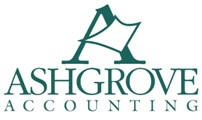Using QuickBooks accounting to your disadvantage
As recently as 15 years ago most small business owners relied on an outside accounting firm to manage their accounting tasks and payroll services. For the most part, this privilege was abused by accountants. Although the reams of financial data sent back to the business was accurate, it was mostly useless information.
Along came QuickBooks and the accounting rug was pulled out from under many accounting firms. Finally the small business owner was empowered to take control of his or her bookkeeping and accounting. Unfortunately most small business owners lack the understanding (and time) required to achieve accurate accounting records, and equally importantly, they lack the ability to interpret the results in any meaningful way. Granted, with QuickBooks you can push a button and find out if you made or lost money last month, but this becomes irrelevant if the underlying data is incomplete. Furthermore, profitability is but one financial measure that provides a very narrow view of how the business is actually performing. As I’ve stated before, 9 out of 10 QuickBooks data files I examine have mistakes that are misleading the business owners. This problem is even more pervasive with other, less understood accounting software.
Small business owners need to start give back some of the accounting responsibility to qualified accountants. In house bookkeeping is fine, but someone who knows what they’re doing, and who genuinely cares about the business needs to examine, correct, and provide a useful opinion about the accounting data. Accountants in general need to step up and start taking more ownership of their clients businesses. I am often appalled at how CPA’s and other accounting professionals service their clients. Sadly, most small business owners can’t tell the difference between good and bad work. Only after an obvious mistake is discovered, does an accounting client decide to get a second opinion.
In big business the problem is often labeled as “accounting irregularities”. With small business it just called sloppiness. Call it whatever you want, if you own a small business, you deserve and should demand that you get accurate and timely financial results. Too many small businesses have been handicapped over time, or have gone out of business because nobody was looking out for best interests of that business owner.
Posted in: Blog
Leave a Comment (0) ↓
